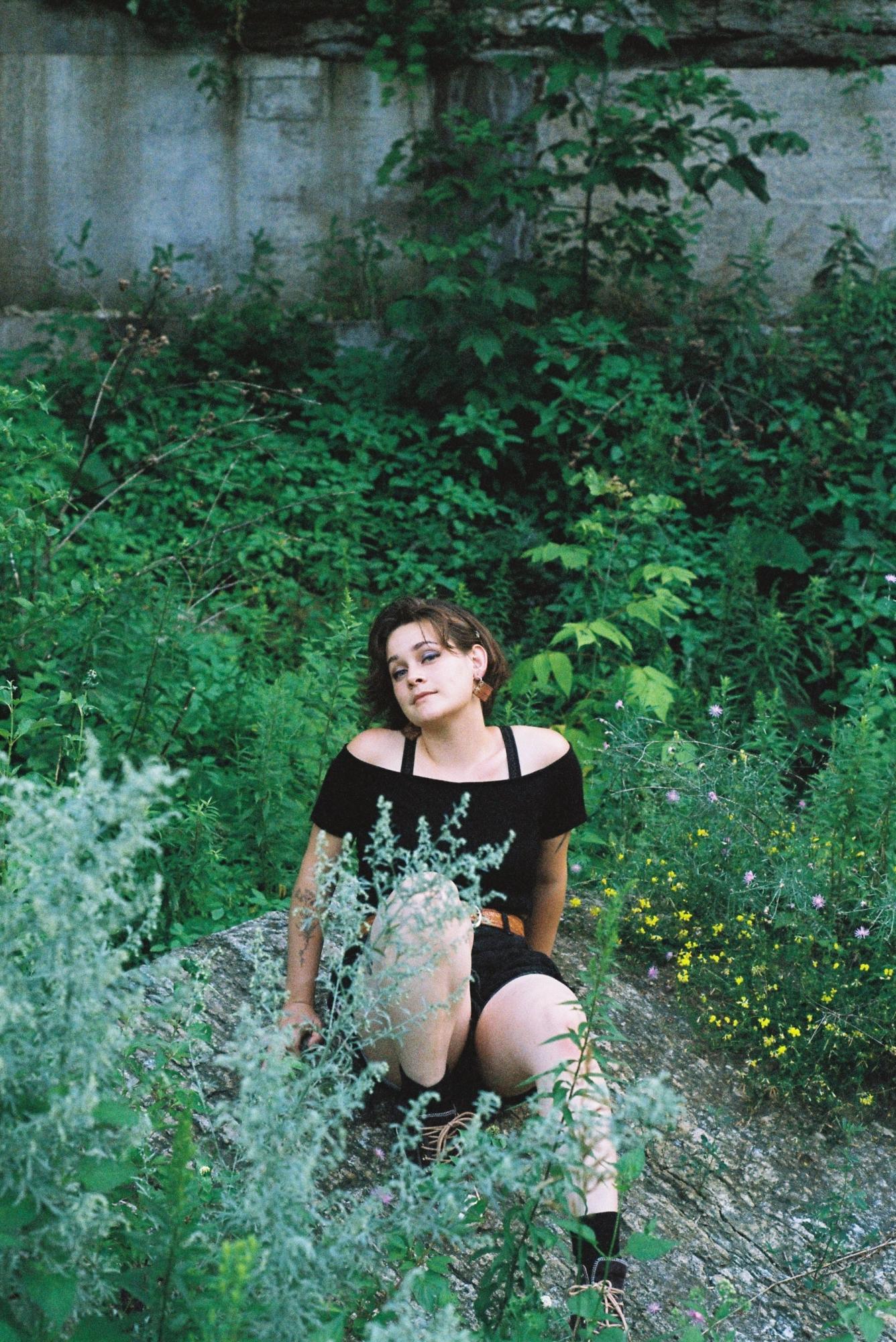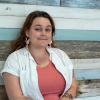Meet Teaching Artist Halee Kirkwood


Halee Kirkwood is a descendant of the Fond du Lac Band of Lake Superior Ojibwe and earned their MFA from Hamline University. Formerly a corporate mascot, janitor, and small-town library assistant, their work has been published in Up The Staircase Quarterly, Muzzle Magazine, ctrl+v, Cream City Review, and others. Kirkwood is a writing mentor and bubblegum poetry wrangler for the Minnesota Prison Writing Workshop and was an inaugural teaching fellow for the 2019 Desert Nights, Rising Stars writing conference at Arizona State University. Their mini-chapbook, Exorcising The Catalogue, was published in fall 2018 with Rinky Dink Press.
Find out more by following Halee on Twitter. Their current classes are listed on their artist bio page.
***
When did you start teaching? What path—career or otherwise—brought you here?
My first classroom experience began at Ashland Middle School in northern Wisconsin, where I was a teaching assistant for a slam poetry class and as a TA for the poetry and fiction courses at my alma mater, Northland College. After moving to the Twin Cities for graduate school, I was a TA at Normandale Community College and at Hamline University for the Runestone: Introduction To Publishing course and for the Senior Seminar in Creative Writing. My writing career has always incorporated a teaching practice. The two are intertwined for me.
How would you describe your teaching style?
I am a process-based and adaptive teacher. I think of the classroom as a generative space and love creative hands-on projects. I pay attention to student needs and desires and am not strictly committed to my idea of how the class should go—if there's reading, lessons, or conversations that would be more beneficial for a class than what I had planned, I am happy to adapt to that challenge. I treat each student as a peer and want to see everyone succeed in what they've defined as success for themselves.
When it comes to imagining and creating classes, where do your ideas come from? What in particular inspires you?
Many of my class ideas generate from overcoming a challenge in my own writing practice. For example, in summer 2019 I taught a course on revision at the Loft, which came from a handful of exercises I created for myself to overcome blocks I had in a draft of a poem. I am inspired to create reading lists from themes I see overlapping in literature, of which I then craft a small course around.
What's the ideal environment for your classroom? What atmosphere are you hoping to establish?
I aim to create an environment where we all cheer when our peers succeed! Connecting students that are doing similar work, or work that complements each other, is a great joy. I want students to take the energy of the course with them after the last day of class. I wish to connect students with opportunities outside of the class to keep that creative momentum going. Above all, I want to create a friendly environment where learning and creating is a pleasurable experience!
Regardless of what your class is specifically focusing on, what's the main goal you have for your students?
My main goal is to give students multiple ways of looking at and approaching their creative practice. I believe in looking at a subject from all possible angles—especially the strange angles—and aim to develop that same sense of multidimensional wonder in my students.
What are goals you have for yourself? These could be teaching goals, writing goals, career goals, community goals, etc.
My main goal at this point is to publish my first book! You know that feeling when you've been on a long, impossible drive and your destination is just over the crest of one last god-forsaken corn field? That's where I am, and I honestly love that feeling.
Beyond my own selfish desires, I wish to hold space for BIPOC, queer, and disabled writers, to connect folks with opportunities and resources that will help them sustain a creative practice and realize their dreams. I wish to contribute to the canon of nature writing that BIPOC folks are already doing the great work of re-writing and re-claiming environmentally-focused literature. I want to see previous students accomplish so many things—whether that means finally reaching a creative breakthrough on a poem that seemed blocked or landing that dream job at an independent press. This makes me ecstatic!
What have been some of your own favorite educational experiences?
Participating in workshops where an instructor has us participate in unusual ways to learn about our own creative and emotional states of being are always my favorite. Take for example workshops taken with the poet Ross Gay during my time as a Loft Mentor Series fellow. Ross pushed us past the idea that we were "masters" of the craft and instead unleashed a spontaneous, uncertain type of creative play by having us make puppets out of whatever we had on our person at the time! Another example is a workshop I took with the poet T.C. Tolbert at the Desert Nights, Rising Stars writing conference at Arizona State University. T.C. had us move and listen to parts of our body with an intuitive and free-ranging sensibility. My favorite educational experiences have always been unconventional. I want to do strange things with remarkable people!
To you personally, what is the most important part of the literary arts?
Deep, honest listening and introspection. Listening to the world around you, your past, your future. Listening to your family and the multilayered histories there. Listening to your body, listening to your sense of love, listening to the communities you've found yourself living throughout your life. Odd listening. Listening with every part of your body and heart. Across genre and form, attention to the world at large is crucial—precise uses of craft and technique fall flat if you haven't done the hard work of listening, which often leads us to uncomfortable places. This is key in the literary arts. How have you transformed from the challenges set before you? And how do you hope to transform your world?
